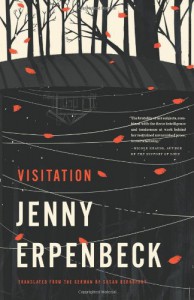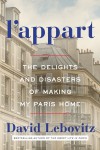19
Followers
19
Following
M Sarki
Besides being a poet with four collections published, M Sarki is a painter, film maker, and photographer. He likes fine coffee and long walks.
M Sarki has written, directed, and produced six short films titled Gnoman's Bois de Rose, Biscuits and Striola , The Tools of Migrant Hunters, My Father's Kitchen, GL, and Cropped Out 2010. More details to follow. Also the author of the feature film screenplay, Alphonso Bow.
Currently reading
L'Appart: The Delights and Disasters of Making My Paris Home
We Learn Nothing: Essays
Elmet: LONGLISTED FOR THE MAN BOOKER PRIZE 2017
Limbo, and Other Places I Have Lived: Short Stories
The Double Life of Liliane
At Home with the Armadillo
American Witness: The Art and Life of Robert Frank
Autumn
Inside Out: A Personal History of Pink Floyd (Reading Edition)
American Witness: The Art and Life of Robert Frank
 http://msarki.tumblr.com/post/53357092386/visitation-by-jenny-erpenbeck
http://msarki.tumblr.com/post/53357092386/visitation-by-jenny-erpenbeckIn my adult lifetime I have lived in, while remodeling, four different houses. I no longer own any of these homes nor do I have any access to them other than the casual drive-by. But my sweat and brains remain a part of each of them, some rotting away as I am, and others being enjoyed and appreciated for the good work my wife and I did in making the houses aesthetic and hospitable when we were stewards of the properties. But none of these houses will remain forever, just like the rest of us. But a remnant or a memory might, or a fragment hidden between the planks among the dusty items on a shelf in the cellar. I know already what all this feels like. Jenny Erpenbeck, the author of this work I am about to speak of, does too.
All the characters of VISITATION who inhabit the property from the time it is built on until its eventual return to vacant land remain as evidence that something of them had to survive. These people Erpenbeck describes as visiting there, in one form or another, take shape as memorable characters, characters we get to know pretty well such as the gardener. His patient and pragmatic labor continues on through the seasons of every different occupant, landowner, or borrower of the property he, the gardener, has maintained through all the years until he too grows old and cannot do much of anything but watch it fall apart before his eyes.
But the story is much more than the succession of ownership and occupation. Giorgio Agamben wrote of the Holocaust in his brilliant book of essays titled Remnants of Auschwitz: The Witness and the Archive. Disheartening and distraught for me as anything ever written of that awful period in our history until Jenny Erpenbeck writes about her character Doris in an eleven page episode set mostly inside a pitch-dark closet. There is nothing I can say here worth the time it takes you to read the pages yourself. Powerful work by one of our strongest voices writing today in any language.
In 2000 I wrote a poem based on my reading of this book of Agamben's. I do not believe I have collected the poem anywhere as yet, and it most likely is because it is hard to find other poems of mine that would feel comfortable being neighbors with it. The poem is as follows:
Muselmann! Preen Our Roses
Not coy but aloof inhumanity.
A tread nom de plume. An
insipid tear. Dolor overcome
by a difficulty unimaginable,
impossible to realize except
in its dying. A death so lonely
that even an outstretched hand
simply grazes it, disturbs the
bones, the chalking skeleton
broken-down but still alive
somehow to only what is left
of its viscosity.
The translator of VISITATION, Susan Bernofsky, again has given us English-speaking folk another little masterpiece in the vein of a Thomas Bernhard or Robert Walser, as close as I can gather. Erpenbeck is no Cormac McCarthy, but who writing today is? But what Jenny Erpenbeck can do is write brilliantly, or Bernofsky in her own genius at translating works for us can help her do so magnificently, and it doesn't much matter to me who is the real hero here. Bernofsky or Erpenbeck, I am eager for more new work from this mighty duo.
But I am not a lover of paperback books, or Kindle, or any of the other electronic devices out there. I do like my hardbacks. The weight and the hold they keep in my lap and my hands. VISITATION is not available in anything but paperback or Kindle here in the USA. Why New Directions decided this book wasn't worth publishing in a more permanent and collectible form is beyond me. There is no other writer today, at least for New Directions, more worthy of a hardcover edition than this fine and courageously brilliant woman.







